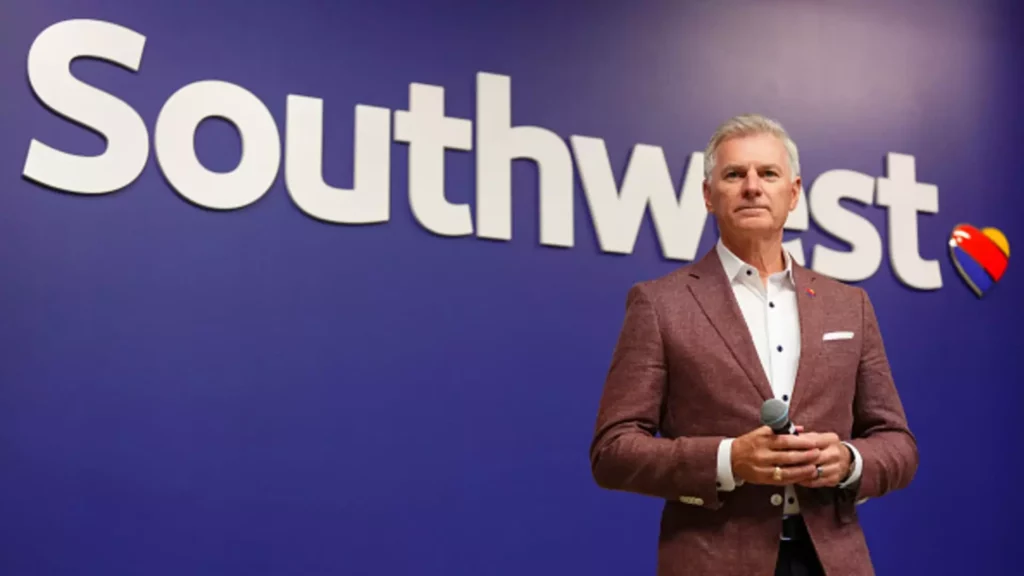In a significant development within the aviation industry, Southwest Airlines has recently negotiated a pivotal agreement with Elliott Investment Management, an activist hedge fund known for pushing corporate reforms. This merger of interests marks not just a power shift within the airline’s governance but also signals an impending transformation in its operational strategies. The implications of this deal extend beyond boardroom politics, potentially reshaping the future direction of the airline amidst increasing competition and evolving market conditions.
Elliott Investment Management has a reputation for its vigorous approach to influencing corporate boardrooms. In a statement following the recent agreement, Elliott representatives expressed their satisfaction with the inclusion of six new directors to Southwest’s board, heralding it as a crucial step in revitalizing the company’s leadership structure. Their call for significant changes, including the proposed ousting of long-standing leaders Gary Kelly and Bob Jordan, emphasized the urgency of new perspectives at the helm. While Elliott stopped short of achieving full board control, the strategic appointment of its nominees indicates a compromise that may redefine how Southwest executes its long-term vision.
A Leadership Transition
The departure of Executive Chairman Gary Kelly, who has been with the airline for over three decades, signifies a pivotal change. Initially set to retire in 2024, Kelly’s accelerated exit next month is indicative of both Elliott’s influence and the airline’s need for a fresher approach. Meanwhile, Bob Jordan retains his position as CEO, which brings a mix of stability and scrutiny to the company’s operational strategies. Kelly’s recent statements suggest a belief in Jordan’s capability to lead the airline into its next phase, an essential factor as the company navigates through its transitional period.
Critics have long pointed out that Southwest’s business model has remained largely unchanged for half a century. The airline’s reluctance to adapt to competitive pressures, reflected in its traditional open seating and single-class service, has raised concerns about its long-term viability. The pressures exerted by Elliott have prompted management discussions around implementing more profitable practices observed in competing carriers like Delta Air Lines. As Southwest now seeks to implement these changes, the importance of dynamic leadership guided by the insights of a newly diversified board cannot be understated.
Despite positive third-quarter earnings that exceeded analyst expectations, Southwest’s overall market performance remains lackluster. With stock prices rising less than one percent year-to-date against a backdrop of a 21 percent increase in the S&P 500, the airline faces critical financial challenges. The decision to cut unprofitable routes demonstrates management’s commitment to improving cost efficiency. Additionally, Southwest’s ambitious plan to bolster earnings before interest and taxes by $4 billion by 2027 reflects a broader strategy to reposition the airline competitively in the marketplace.
A notable aspect of the newly formed alliance with Elliott is the authorization of a substantial $2.5 billion buyback program, which reflects an attempt to reassure investors about the airline’s financial health and future prospects. This initiative, accompanied by a concerted effort to restructure the board, may elevate shareholder confidence and ultimately stabilize stock prices. However, while these moves demonstrate proactivity, the real test lies in how effectively Southwest can implement strategic changes without alienating its loyal customer base.
The recent agreement between Southwest Airlines and Elliott Investment Management marks a pivotal moment in the airline’s history. As it braces itself for an era of transformative leadership and strategic change, the consequences of this deal will undoubtedly reverberate throughout the industry. By ultimately seeking a balance between innovation and maintaining core principles, Southwest has the opportunity to not only overcome its current challenges but also to reclaim its position as a leader in the aviation sector. The unfolding narrative promises to be an intriguing journey that will be closely watched by industry analysts and consumers alike.

